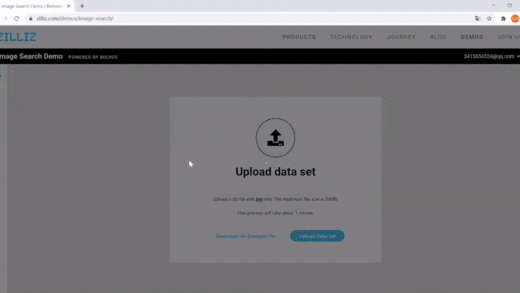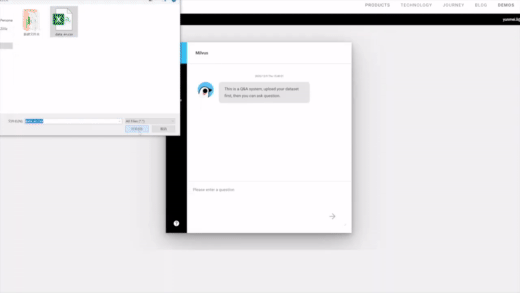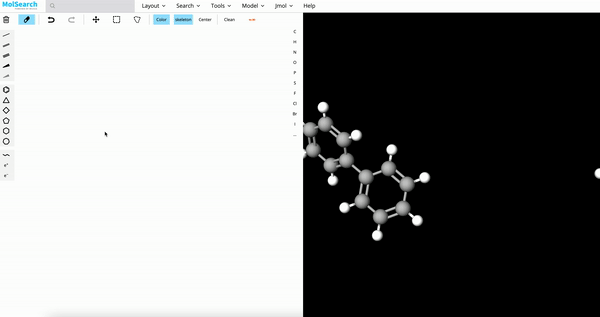Milvus is an open-source vector database built to power embedding similarity search and AI applications. Milvus makes unstructured data search more accessible, and provides a consistent user experience regardless of the deployment environment.
Milvus 2.0 is a cloud-native vector database with storage and computation separated by design. All components in this refactored version of Milvus are stateless to enhance elasticity and flexibility. For more architecture details, see Milvus Architecture Overview.
Milvus was released under the open-source Apache License 2.0 in October 2019. It is currently a graduate project under LF AI & Data Foundation.
Millisecond search on trillion vector datasets
Average latency measured in milliseconds on trillion vector datasets.Simplified unstructured data management
Reliable, always on vector database
Milvus’ built-in replication and failover/failback features ensure data and applications can maintain business continuity in the event of a disruption.Highly scalable and elastic
Component-level scalability makes it possible to scale up and down on demand. Milvus can autoscale at a component level according to the load type, making resource scheduling much more efficient.Hybrid search
Since Milvus 2.4, we introduced multi-vector support and a hybrid search framework, which means users can bring in several vector fields (up to 10) into a single collection. These vectors in different columns represent diverse facets of data, originating from different embedding models or undergoing distinct processing methods. The results of hybrid searches are integrated using reranking strategies, such as Reciprocal Rank Fusion (RRF) and Weighted Scoring.This feature is particularly useful in comprehensive search scenarios, such as identifying the most similar person in a vector library based on various attributes like pictures, voice, fingerprints, etc. For details, refer to Hybrid Search for more.
Unified Lambda structure
Milvus combines stream and batch processing for data storage to balance timeliness and efficiency. Its unified interface makes vector similarity search a breeze.Community supported, industry recognized
With over 1,000 enterprise users, 27,000+ stars on GitHub, and an active open-source community, you’re not alone when you use Milvus. As a graduate project under the LF AI & Data Foundation, Milvus has institutional support.Zilliz Cloud is a fully managed service on cloud and the simplest way to deploy LF AI Milvus®, See Zilliz Cloud and start your free trial.
Check the requirements first.
Linux systems (Ubuntu 20.04 or later recommended):
go: >= 1.21
cmake: >= 3.26.4
gcc: 9.5
python: > 3.8 and <= 3.11MacOS systems with x86_64 (Big Sur 11.5 or later recommended):
go: >= 1.21
cmake: >= 3.26.4
llvm: >= 15
python: > 3.8 and <= 3.11MacOS systems with Apple Silicon (Monterey 12.0.1 or later recommended):
go: >= 1.21 (Arch=ARM64)
cmake: >= 3.26.4
llvm: >= 15
python: > 3.8 and <= 3.11Clone Milvus repo and build.
# Clone github repository.
$ git clone https://github.com/milvus-io/milvus.git
# Install third-party dependencies.
$ cd milvus/
$ ./scripts/install_deps.sh
# Compile Milvus.
$ makeFor the full story, see developer's documentation.
IMPORTANT The master branch is for the development of Milvus v2.0. On March 9th, 2021, we released Milvus v1.0, the first stable version of Milvus with long-term support. To use Milvus v1.0, switch to branch 1.0.
See Milvus 2.0 vs. 1.x for more information.

|

|

|
| Image search | Chatbots | Chemical structure search |
|---|
Images made searchable. Instantaneously return the most similar images from a massive database.
Interactive digital customer service that saves users time and businesses money.
Blazing fast similarity search, substructure search, or superstructure search for a specified molecule.
Milvus bootcamp is designed to expose users to both the simplicity and depth of the vector database. Discover how to run benchmark tests as well as build similarity search applications spanning chatbots, recommendation systems, reverse image search, molecular search, and much more.
Contributions to Milvus are welcome from everyone. See Guidelines for Contributing for details on submitting patches and the contribution workflow. See our community repository to learn about our governance and access more community resources.
For guidance on installation, development, deployment, and administration, check out Milvus Docs. For technical milestones and enhancement proposals, check out milvus confluence
The implemented SDK and its API documentation are listed below:
- PyMilvus SDK
- Java SDK
- Go SDK
- Cpp SDK(under development)
- Node SDK
- Rust SDK(under development)
- CSharp SDK(under development)
Attu provides an intuitive and efficient GUI for Milvus.
Join the Milvus community on Discord to share your suggestions, advice, and questions with our engineering team.
You can also check out our FAQ page to discover solutions or answers to your issues or questions.
Subscribe to Milvus mailing lists:
Follow Milvus on social media:
Reference to cite when you use Milvus in a research paper:
@inproceedings{2021milvus,
title={Milvus: A Purpose-Built Vector Data Management System},
author={Wang, Jianguo and Yi, Xiaomeng and Guo, Rentong and Jin, Hai and Xu, Peng and Li, Shengjun and Wang, Xiangyu and Guo, Xiangzhou and Li, Chengming and Xu, Xiaohai and others},
booktitle={Proceedings of the 2021 International Conference on Management of Data},
pages={2614--2627},
year={2021}
}
@article{2022manu,
title={Manu: a cloud native vector database management system},
author={Guo, Rentong and Luan, Xiaofan and Xiang, Long and Yan, Xiao and Yi, Xiaomeng and Luo, Jigao and Cheng, Qianya and Xu, Weizhi and Luo, Jiarui and Liu, Frank and others},
journal={Proceedings of the VLDB Endowment},
volume={15},
number={12},
pages={3548--3561},
year={2022},
publisher={VLDB Endowment}
}
Milvus adopts dependencies from the following:
- Thanks to FAISS for the excellent search library.
- Thanks to etcd for providing great open-source key-value store tools.
- Thanks to Pulsar for its wonderful distributed pub-sub messaging system.
- Thanks to Tantivy for its full-text search engine library written in Rust.
- Thanks to RocksDB for the powerful storage engines.
Milvus is adopted by following opensource project:
- Towhee a flexible, application-oriented framework for computing embedding vectors over unstructured data.
- Haystack an open source NLP framework that leverages Transformer models
- Langchain Building applications with LLMs through composability
- LLamaIndex a data framework for your LLM applications
- GPTCache a library for creating semantic cache to store responses from LLM queries.



